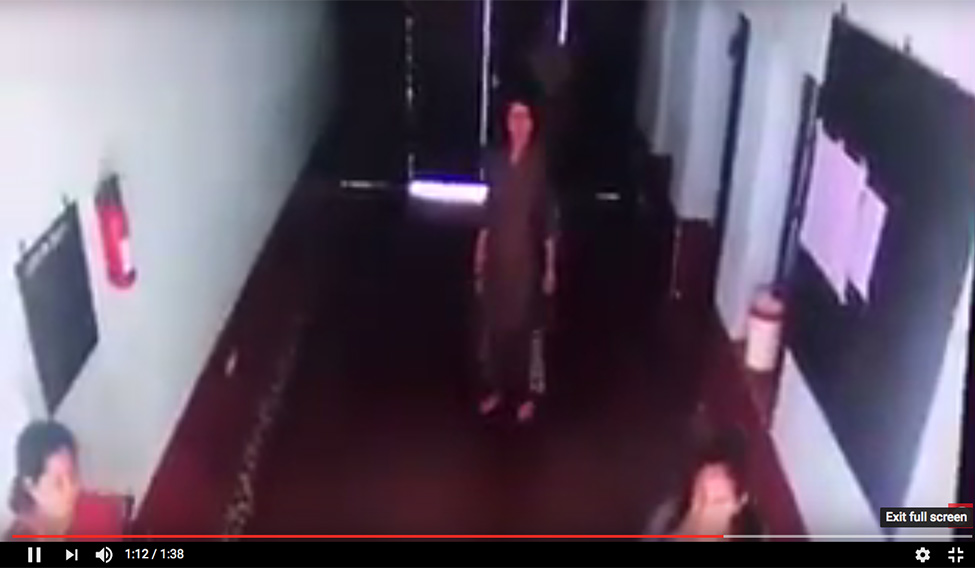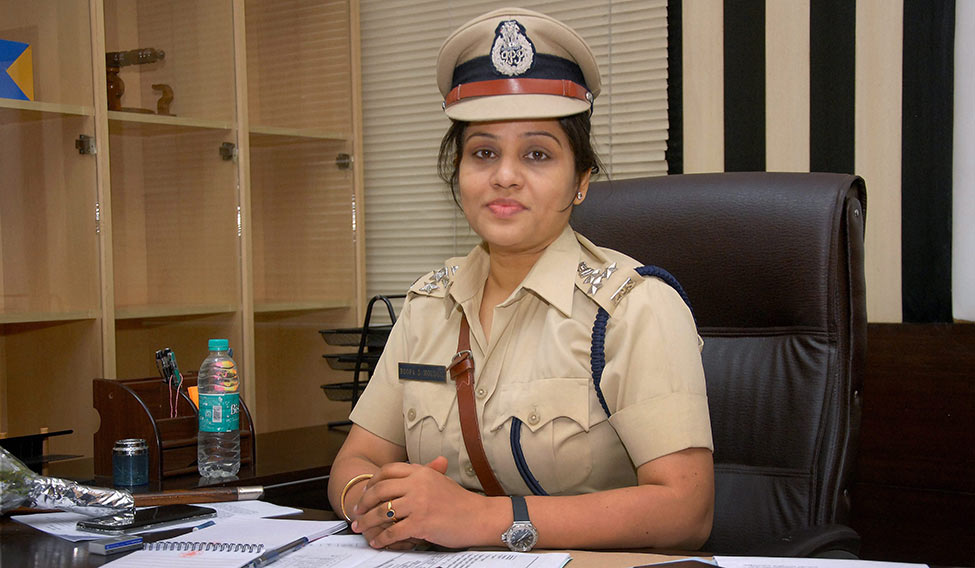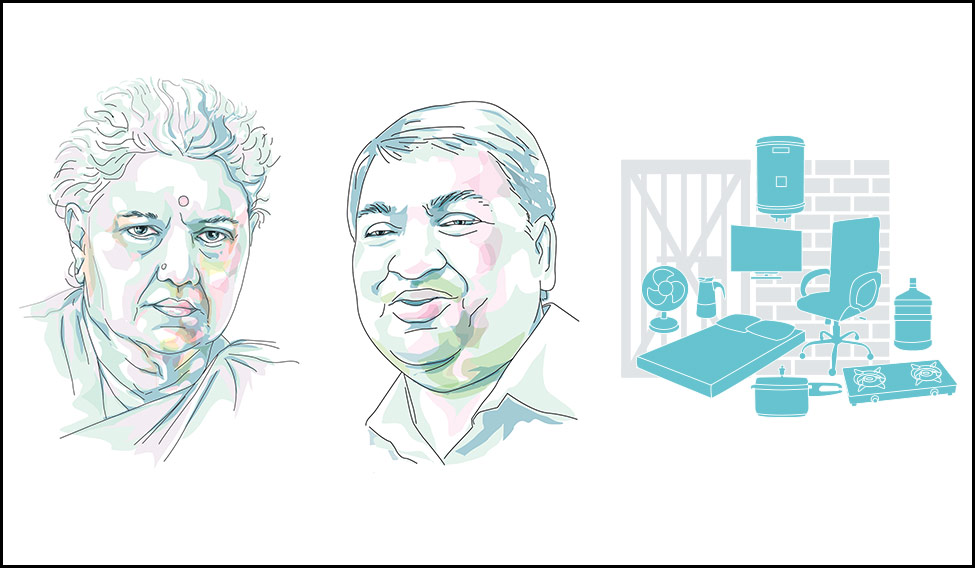The high walls of the Bengaluru’s Central Prison in Parappana Agrahara seem to have too many dark secrets to guard. Stories of smuggled mobile phones, liquor and drugs, and extortion and sex racketing inside the jail have made headlines before.
But, on July 12, Deputy Inspector-General (Prisons) D. Roopa Moudgil opened a can of worms with her explosive jail report alleging “VIP treatment” to high-profile convicts such as AIADMK (Amma) general secretary V.K. Sasikala, convicted in a disproportionate assets case, and Abdul Karim Telgi, kingpin of the multi-crore fake stamp paper scam.
Soon ensued mudslinging among top police officers. And, the whistleblower was shunted out to the traffic department.
Now, however, Roopa stands vindicated. After quizzing jail officials, Karnataka assembly’s Public Accounts Committee confirmed that Sasikala was, indeed, given special treatment in the prison.
The committee, chaired by BJP legislator and former home minister R. Ashok, has asked prison officials to submit a detailed action-taken report in 15 days. Sources say V.C. Prakash (a friend of former home minister and Karnataka Congress president G. Parameshwara) has also confessed to the Delhi Police that he “helped arrange meetings” between Sasikala and her party leaders, including her nephew and deputy T.T.V. Dhinakaran, inside the prison.
Prakash, who was being interrogated in a bribery case, said he “knew” some jail officials. “Mallikarjun [close aide of Dhinakaran] asked me to help organise meetings with Sasikala,” he told the police.
In 2003, DMK leader K. Anbazhagan had moved Supreme Court seeking transfer of Sasikala’s case outside Tamil Nadu for a “free and fair” probe. The case was shifted to Karnataka. In February this year, she was convicted and sentenced to four years’ imprisonment.
Roopa’s report rocked Karnataka’s Congress government, which is bracing for the 2018 Assembly polls. The four-page report—submitted to state police chief R.K. Dutta, Director General of Police (Prisons) H.N. Satyanarayana Rao, the home department and the Anti-corruption Bureau—alleged “preferential treatment” to some convicts and highlighted issues such as rampant drug abuse by inmates.
 A clipping in which Sasikala is seen walking within the jail in plainclothes was “leaked” to the media.
A clipping in which Sasikala is seen walking within the jail in plainclothes was “leaked” to the media.
She also noted that there were murmurs that Rao had taken a bribe of Rs 1 crore, while another Rs 1 crore was split among jail officials to provide “five-star facilities” to Sasikala. The alleged “facilities” included a special kitchen and a mini ‘conference room’ to meet visitors, besides a cordoned-off area consisting five cells, mattress, mosquito net, LED TV, canvas curtains, stove and pressure-cooker.
On July 13, Chief Minister Siddaramaiah ordered an inquiry by retired IAS officer Vinay Kumar. The opposition parties, however, demanded a judicial probe.
Five days later, Roopa and Rao were transferred, citing that they violated All India Service Rules, and that their transfers would ensure a fair probe. Roopa was posted as commissioner of traffic and road safety; Rao was sent on forced leave as he retires in August. R. Anita, who replaced Roopa, was also transferred within a few days on charges of giving preferential treatment to Sasikala.
Meanwhile, Rao vehemently denied the charges. He accused Roopa of trying to get even with him, as he had issued her two memos for not attending a “CM meeting” and because she was unhappy with the division of work in the department.
Soon after submitting a 16-page letter to the government, Rao rushed to the jail, ahead of the pending inquiry. Roopa, too, visited the jail a few hours later. She submitted a second report, after a jail official who had been asked to give her the CCTV visuals and video recordings of her previous visits allegedly refused to do so, citing orders from the higher-ups. Anita is said to be the officer who refused to hand over the video evidences.
Roopa alleged that crucial CCTV footages that could have proved her charges went mysteriously missing. She accused Rao of foulplay.
“The CCTVs installed at the barracks have been deliberately rendered dysfunctional, while CCTV cameras (7 & 8) in the visitor room are broken,” she alleged. “Select footages have been deleted from the DVR [digital video recorder] at the prisons headquarters, too. The video recording of statements given by the inmates during [my] visits on June 28 and July 10, and the prison diary entries, too, have vanished.”
High drama prevailed in the jail on July 15, after some inmates raised slogans against Roopa during her visit, while another group rallied in her support. That night, at least 32 inmates were allegedly beaten up on the orders of Jail Superintendent Krishna Kumar, and they were allegedly shifted to jails in Bellary, Belagavi and Mysuru. The high-profile probe was to begin the next day.
Kumar, who was busy collecting signatures of 2,000 inmates in his favour, was transferred, after public outcry and protests by inmates. The NHRC also has taken up the case of alleged torture of the 32 inmates.
The opposition parties led by BJP leader B.S. Yeddyurappa raised the ‘luxegate’ issue with Union Home Minister Rajnath Singh, and demonstrated against the Karnataka government’s “shooting the messenger syndrome”.
The issue came to a boil with a video clipping of Telgi’s cell with the comforts of home—a cot, an LED television, a computer, and under-trials “assigned” to give him massages—going viral on social media.
Another set of visuals showing five cells being cordoned off for Sasikala’s use was also splashed in the media. A clipping in which she is seen walking within the jail in plainclothes was also “leaked” to the media.
Notably, in June, Rao himself had said he would curtail the number of Sasikala’s visitors, after reports of her meeting 28 visitors in 31 days surfaced. The visitors—including her husband Natarajan, nephews T.T.V. Dhinakaran, Vivek Jayaraman and K. Kartikeyan, Deputy Speaker of Lok Sabha M. Thambidurai, and many leaders from Tamil Nadu—were allowed to meet her for long hours.
According to rules, a convict is eligible to meet visitors only once in 15 days, and the meetings have to be monitored by a prison official. But in Sasikala’s case, a private meeting room with five chairs, including a revolving one for her, was set up, alleged Roopa.
Sasikala’s nephew Jeyanandh Dhivakaran rubbishes the charges. “My aunt [Sasikala] is being used as bait in the cold war between two IPS officers,” he alleges.
According to Roopa’s report, Telgi, a diabetic and AIDS patient, was confined to the wheelchair six months ago, and the court had allowed him to utilise the service of two convicts. She noted that Telgi moved around without the wheelchair, but continued to have undertrials give him massages in his cell.
This, she pointed out, violated the court order and prison rules, which bar under-trials from mingling with convicts. “However, the jail superintendent had taken no action, despite my reminders,” alleged Roopa.
“My father-in-law [Telgi] is very sick and has been using wheelchair for many years,” says Irfan Talikote, a businessman married to Telgi’s daughter Sana, who lives in Belgaum. “If there are more than two people serving him in the jail, they are doing it voluntarily because of his friendly nature. The officer [Roopa] is doing this for publicity.”
The Prison Manual, however, prescribes “basic minimum needs” to the inmates and bans “VIP privileges” to any inmate.
In October 2013, a Central Armed Reserve Constable Yenkanna Meti was arrested for smuggling in mobile phones for Telgi. Recently, after an extortion call was traced to the Parappana Agrahara prison, authorities admitted that 19 mobile phone jammers in the jail were defunct.
Roopa also highlighted drug abuse in the jail. A urine test revealed that 18 of 25 randomly selected prisoners tested positive for cannabis, barbiturates, benzodiazepine and morphine.
“From the DGP to the jail warden, all are involved in flouting the prison manual,” alleged Roopa.
 Roopa Moudgil | PTI
Roopa Moudgil | PTI
Highlights from former DIG (Prisons) Roopa Moudgil’s reports
Report 1
Bribe of Rs 2 crore paid for “VIP treatment” and a special kitchen for Sasikala
Abdul Karim Telgi enjoys special treatment. Undertrials have been assigned as his masseurs
Rampant smuggling of narcotics
Convicts man the records room, where crucial documents are kept
Why was her boss, H.N. Satyanarayana Rao, unhappy over her visit to the jail “without permission”?
Inmates threaten doctors to issue certificates that can help them get treatment in hospitals
Inmates work at the prison’s pharmacy, raising concerns over misuse of sleeping pills
Report 2
A locked room on the first floor, where the officers’ chambers are located, was maintained as a “meeting room” with curtains, a table and five chairs, including a revolving one for Sasikala. Ordinary prisoners meet visitors in an enclosure divided by a mesh, and under CCTV surveillance (Cameras 6 and 7)
The department has to safeguard crucial footage and hold the officials responsible in case of loss of evidence. The evidence includes CCTV footage from Telgi’s cell (Camera 89)
CCTV footage proves that a special kitchen was set up for Sasikala
Undertrials (in barrack no. 3) have not been given legal aid for almost a year
Video recordings of Roopa interacting with inmates are missing. First, she received a blank pen drive, and later a pen drive without the crucial footage
Mobile phone jammers are defunct, despite an annual
maintenance contract being in place







